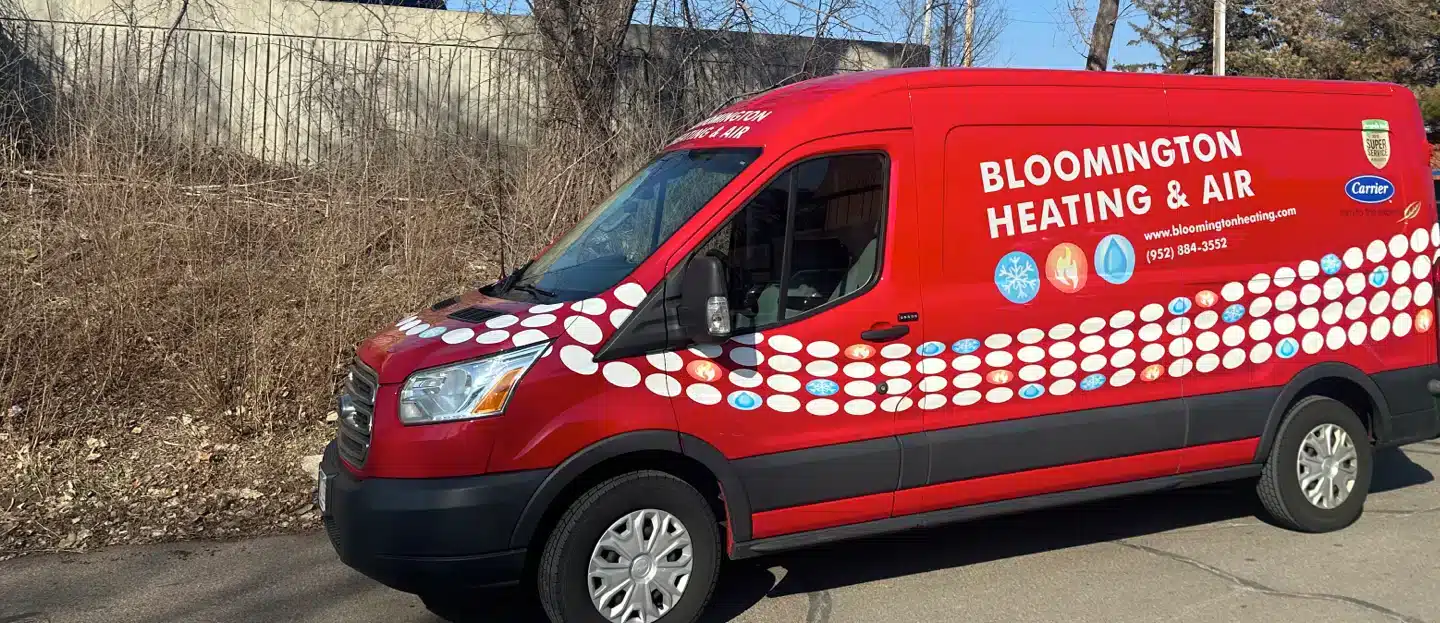Tips To Remove Allergens & Reduce Asthma Triggers At Home
Trustworthy Team, Locally Owned

24/7 Emergency Phone Line
Family Owned & Operated
Licensed, Bonded & Insured
For individuals that suffer from allergies and asthma, what they can’t see can hurt them. Allergy and asthma triggers, such as tree pollen, grass and weed pollen, lint, pet dander, dust, mold spores, and smoke can make your living space an unhealthy environment. Many of the allergens that commonly exist within a home are small enough to penetrate the lungs, bypassing filtration by the nose and throat.
Fortunately, whether you are trying to stave-off a pollen allergy or are looking for ways to reduce the risk of an asthma attack, there are a number of things you can do to improve the quality of air inside your home. Bloomington Heating & Air offers the following tips for controlling indoor allergens and asthma triggers in your residential space.
Contact us today to learn more and to schedule HVAC services for improved indoor air quality!
Change Air Filters Regularly
Regularly replacing your home’s air filter can help lower the number of allergy and asthma-exacerbating particulates circulating throughout your home. Before you rush to purchase a new filter, however, It’s important for you to understand the differences among different air filter MERV ratings and the ideal type of filter for your heating and cooling system.
For individuals suffering from severe asthma and allergy symptoms, we recommend using a HEPA filter (high-efficiency particulate air filter), which traps more than 99 percent of microscopic particles from the air. For your convenience, we also offer professional indoor air quality (IAQ) services that can help you achieve high-quality indoor air that is free from harmful allergens and asthma triggers — contact us to schedule residential IAQ HVAC services today!
Remove Pet Dander Promptly
Dander and saliva from animals with fur or feathers — including birds, cats, dogs, hamsters, Guinea pigs, rabbits, and mice — can be asthma attack triggers for some individuals and allergy symptom triggers for others. Pet owners can diminish dust and dander allergy symptoms by using a wet cleaning cloth or duster to wipe down surfaces and, then, vacuuming and mopping floors at least once per week.
We recommend keeping pets out of the bedroom and other rooms where those suffering from asthma or allergies spend significant amounts of time in. Alternatively, consider bathing and changing clothes after playing with furred pets, and promptly removing any shed fur from living areas.
Get Rid Of Dust Mites

For effective asthma control, keep surfaces of the home both clean and uncluttered. Bare floors, especially in the bedroom, are ideal for those with asthma and allergies, as carpeting and rugs can easily trap dust and dust mites. For homeowners who must have rugs in their living spaces, we advise choosing low-pile carpets or throw rugs that can be easily and regularly cleaned or washed.
Avoid heavy drapes and overstuffed furniture composed of fabric materials and replace drapes and blinds with roll-down shades or washable curtains or drapes. In the bedroom, use allergen-resistant, zippered covers on pillows, mattresses, and box springs, as these covers are effective in controlling contact with dust mites. Additionally, wash bedding in hot water regularly.
Use A Whole-House Air Purifier
A whole-home air cleaner, or whole-house air purifier, effectively removes small airborne particulates and allergens that cannot naturally be filtered by the mouth and nose, offering an additional degree of protection beyond air filters. For those with asthma and allergies, we recommend installing air purifiers for allergies in their residential spaces for high-quality, filtered air that helps them breathe easier while at home.
Bloomington Heating & Air offers an encompassing range of indoor air solutions and our technicians can inspect your system to determine the best air purifier for your needs. We can even help you decide whether a system upgrade would be beneficial for clean, breathable air all year-round.
Avoid Mold Spores
Both mold and mold spores are major asthma and allergy triggers. Warm, moisture-rich environments, such as the bathroom, kitchen, and basement make ideal breeding grounds for mold and mildew to grow and spread to other parts of the home.
For asthma and allergy control, turn on the bathroom fan or open a window both during and after showers or baths; turn on the kitchen fan or open a window while cooking and washing dishes; use a clean dehumidifier and air conditioner to keep humidity levels between 35-50 percent; fix all leaks and other causes of damp areas; and wash and dry hard surfaces to prevent mold growth, particularly in the bathroom and kitchen. For help choosing a dehumidifier, contact us today.
Schedule HVAC Maintenance
According to the American Lung Association, season changes, high pollen counts, and extreme hot and cold temperatures can all trigger and exacerbate allergy and asthma symptoms. The best way to prevent sudden or extreme temperature changes indoors is by scheduling professional HVAC maintenance.
Timely tune-ups can not only help you avoid costly repairs and improve HVAC efficiency by ensuring your system functions as it should — reducing the risk of an unexpected breakdown — but they can also boost residential indoor air quality levels and promote healthier, cleaner air. What’s more, regular maintenance can also help regulate indoor humidity levels and combat the production and spread of mold and mildew spores.
